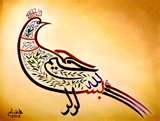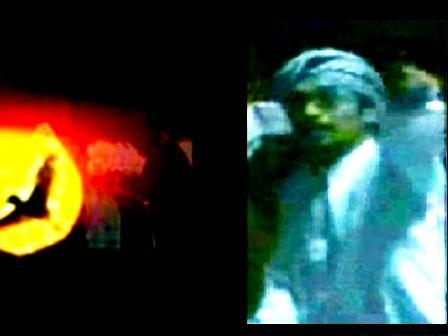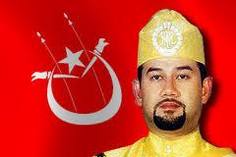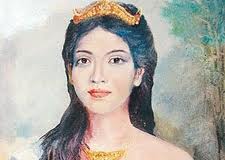Sahih Bukhari depicts the confused mental state of the suicidal Muhammad (s) – (astaghfirullah)
We read in Sahih Bukhari Volume 9, Book 87, Number 111:
Narrated Aisha:
The commencement of the Divine Inspiration to Allah’s Apostle was in the form of good righteous (true) dreams in his sleep. He never had a dream but that it came true like bright day light. He used to go in seclusion (the cave of) Hira where he used to worship (Allah Alone) continuously for many (days) nights. He used to take with him the journey food for that (stay) and then come back to (his wife) Khadija to take his food like-wise again for another period to stay, till suddenly the Truth descended upon him while he was in the cave of Hira. The angel came to him in it and asked him to read. The Prophet replied, “I do not know how to read.” (The Prophet added), “The angel caught me (forcefully) and pressed me so hard that I could not bear it anymore. He then released me and again asked me to read, and I replied, “I do not know how to read,” whereupon he caught me again and pressed me a second time till I could not bear it anymore. He then released me and asked me again to read, but again I replied, “I do not know how to read (or, what shall I read?).” Thereupon he caught me for the third time and pressed me and then released me and said, “Read: In the Name of your Lord, Who has created (all that exists). Has created man from a clot. Read and Your Lord is Most Generous…up to….. ..that which he knew not.” (96.15)
Then Allah’s Apostle returned with the Inspiration, his neck muscles twitching with terror till he entered upon Khadija and said, “Cover me! Cover me!” They covered him till his fear was over and then he said, “O Khadija, what is wrong with me? ” Then he told her everything that had happened and said, “I fear that something may happen to me.” Khadija said, “Never! But have the glad tidings, for by Allah, Allah will never disgrace you as you keep good reactions with your Kith and kin, speak the truth, help the poor and the destitute, serve your guest generously and assist the deserving, calamity-afflicted ones.” Khadija then accompanied him to (her cousin) Waraqa bin Naufal bin Asad bin ‘Abdul ‘Uzza bin Qusai. Waraqa was the son of her paternal uncle, i.e., her father’s brother, who during the Pre-Islamic Period became a Christian and used to write the Arabic writing and used to write of the Gospels in Arabic as much as Allah wished him to write. He was an old man and had lost his eyesight. Khadija said to him, “O my cousin! Listen to the story of your nephew.” Waraqa asked, “O my nephew! What have you seen?” The Prophet described whatever he had seen.
Waraqa said, “This is the same Namus (i.e., Gabriel, the Angel who keeps the secrets) whom Allah had sent to Moses. I wish I were young and could live up to the time when your people would turn you out.” Allah’s Apostle asked, “Will they turn me out?” Waraqa replied in the affirmative and said: “Never did a man come with something similar to what you have brought but was treated with hostility. If I should remain alive till the day when you will be turned out then I would support you strongly.” But after a few days Waraqa died and the Divine Inspiration was also paused for a while and the Prophet became so sad as we have heard that he intended several times to throw himself from the tops of high mountains and every time he went up the top of a mountain in order to throw himself down, Gabriel would appear before him and say, “O Muhammad! You are indeed Allah’s Apostle in truth” whereupon his heart would become quiet and he would calm down and would return home. And whenever the period of the coming of the inspiration used to become long, he would do as before, but when he used to reach the top of a mountain, Gabriel would appear before him and say to him what he had said before.
The Prophet (s) relays his entire experience to Waraqa, that leads him to conclude “...this is the same Namus (i.e., Gabriel, the Angel who keeps the secrets) whom Allah had sent to Moses” . It is worthy to note that this narration informs us that Waraqa was a Jew that had then embraced Christianity, and was active in that he translated the Gospels into the Arabic language. Despite this, the response he gives suggests that Waraqa remained under the influence of Judaic thinking despite his conversion, evident by the fact that rather than cite the example of a nexus between the Messiah Isa (as) and Namus, he referred to Moses, that points to him rejecting any such connection with Isa (as). Had he affirmed belief in Namus approaching Isa (as), he would have not needed to cite the example of Moses (as), as he had abandoned Judaism in favour of a religion wherein Christ was deemed the divine head, that would have (without a doubt) had a link with Namus.

































No comments:
Post a Comment
Note: Only a member of this blog may post a comment.